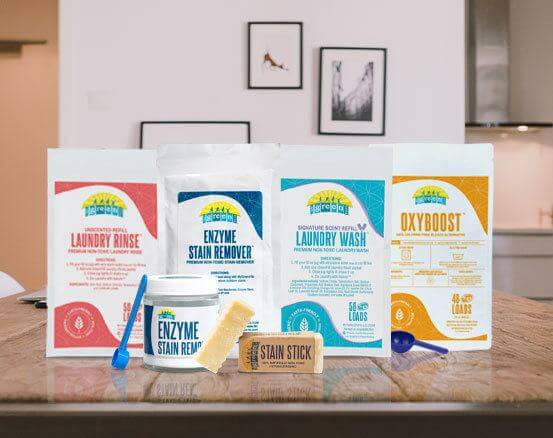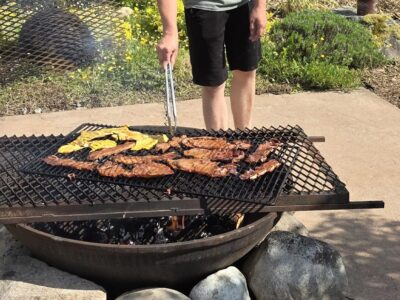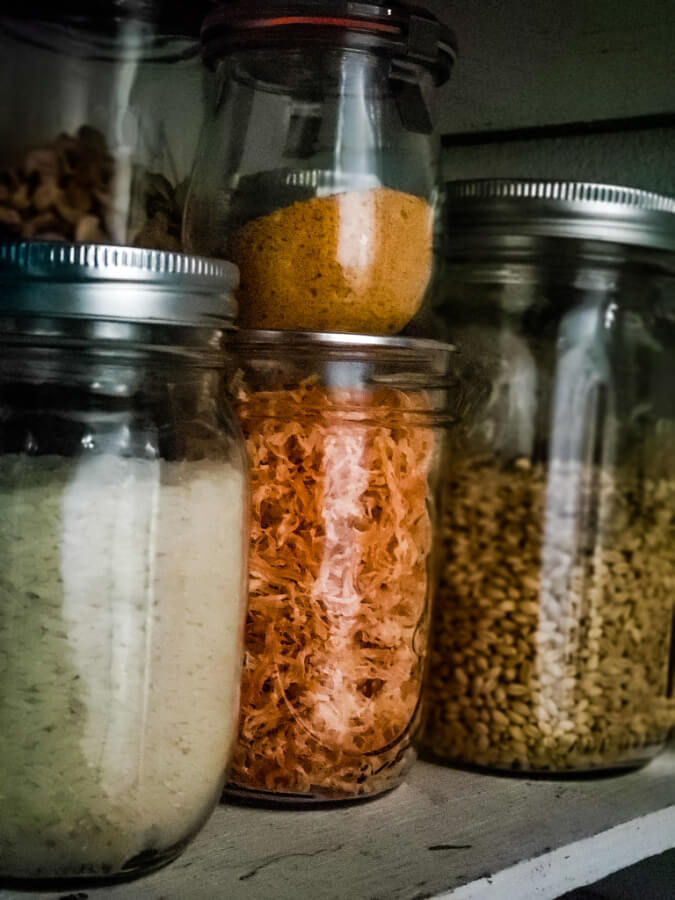
I’ll share with you the things you need to do now to prepare for the second wave of COVID. Whether you agree or not, we’re all still living with the effects of it. At this writing, it’s still summertime and we’re in phase two with some restrictions here in Washington state. When we were in phase one there were lots of restrictions. I have a feeling as we move into a normal time frame for cold and flu season we’ll see those restrictions come back like they were in the early spring when all of this began.
Listen in below to the full podcast, Episode #271 9 Things To Do Now for Fall COVID Preparations, of the Pioneering Today Podcast, where we don’t just inspire you, but give you the clear steps to create the homegrown garden, pantry, kitchen, and life you want for your family and homestead.
Natural Remedies Made Simple

Start your home apothecary with confidence—even if you’re brand new. Learn how to choose the right herbs for your body using the simple principles of herbal energetics.
Discover how warming, cooling, drying, and moistening herbs affect your body—so you can stop guessing and start making remedies that actually work.
While I hope that there won’t be a second wave I still feel it’s important to prepare for it. These are the things that my family is personally doing. And even if there isn’t a second wave everything that we’re doing now is going to serve my family. It will not be wasted. It won’t be a loss. I’ll still be glad that we did it. But if we go into a second wave then I’m going to be really, really happy that we’ve taken these measures. And you will too.
Table of Contents[Hide][Show]
Food Supply
The first step is food supply, right? The food that we have on the shelves. When the pandemic began to hit we saw things wiped out. Toilet paper of not being available now lives in infamy, right? If you are still having trouble finding it I shared Toilet Paper Substitutes & Tips for Reusable Household Items. Hopefully, it won’t be an issue this time around. Yeast was a big thing too. There was no yeast to be found. Flour was even hard to come by. There were lots of different staple items that for probably at least six weeks were hit or miss for getting your hands on any.
Sourdough – as long as you have flour and water you’re capturing wild yeast. You don’t need to have any store-bought yeast. I have a whole free video series that shows you how to make a sourdough starter with just water and flour and how to create lots of delicious food from that.
I’m leading into the food supply. We saw already that there were limited things on hand. We saw shortages of meat. Fortunately, right now we’re not seeing these shortages. To be ahead of the game our goal is to have five to six months of all of these food supplies on hand.
Staples
It’s almost been six months since this started to impact us in March. By now you should have a pretty good idea if you bought things in the beginning of March how much you’ve used, how much you’ve had to buy. How often have you had to replace it? That should give you a very good feel for how much you need to have on hand for five or six months.
We definitely make sure to have wheat berries and flour, salt, baking soda, baking powder, popcorn, butter, fats, and oils, different forms of sugar, vinegar, and honey. I went more in-depth on my YouTube channel where I talked about 15 Pantry Items to Stock up On.
Those are things that aren’t like meat and produce that I’m growing and raising and putting up and preserving myself. I don’t need to purchase meat and produce in bulk for the most part. These are things that we can’t easily grow here.
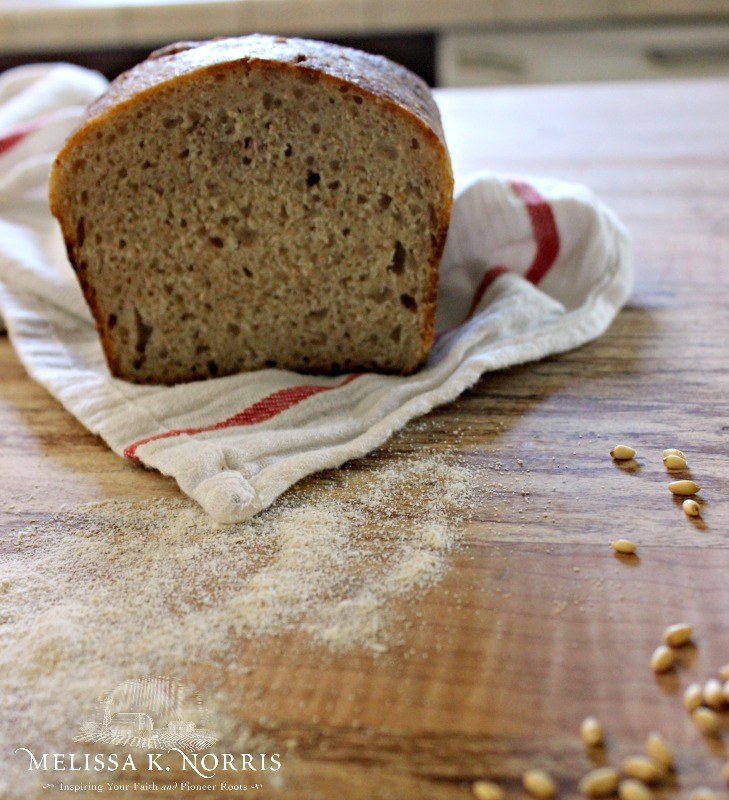
Where to Buy Food in Bulk
I recently started using Azure Standard this past spring. What I love about using Azure Standard is that doesn’t allow me to impulse shop. And it opens up the door to so many more different items. I can get things in bulk there that I’ve never found even at Costco or other places online. And if I have, it’s often better priced. A bag of organic spelt wheat berries is half the price that I’ve ever found anywhere else. And you can get things in small quantities. You can get items in five, 10, 25, or 50-pound bags (or even larger) which I’ve never had that option with a lot of things before now.
I will say, just like anybody else, there have been times where I’ve put things on my order and it hasn’t been in stock. That is just the reality of where we’re at. They’re experiencing all the demands of COVID and the pandemic too. They’re a family-owned company and will use different farms from smaller family-owned companies. I really like being able to support smaller companies that also support smaller farms. A lot of their produce is organic, non-GMO whole foods. Stuff that really fits with our lifestyle and the prices are great.
The thing I like though is that you place your order on their website, you pay for it online, and then they have a truck that delivers once a month. Your order is all packaged up and ready to go. I don’t have to wear a mask. I just go where my drop zone is at the time. Mine comes in a refrigerated truck.
I highly recommend them. It’s great that you can look at past orders and the pounds, and if you’re almost out you can calculate out knowing what you received many weeks or months ago. It really helps get an understanding of how much you truly use and need to have on hand. That’s how I’ve been managing our supply.
To see when and where your dropzone is, click here and type in your zip code! (They’re working on getting expanded to the Northeast, so if you don’t see your area listed, shoot them an email!)
Dairy
I pretty much try to have all of the things on hand that we’re not able to produce on the homestead. We would be limited on things like milk because we don’t have a dairy source. I do have some powdered milk. Milk can be froze to a degree, but fresh milk would be the thing that we would miss. And cream. This girl takes full cream in her coffee.
Growing
Other than that we’re pretty well stocked for what we use. There is still time to put up food. There are still some things you can get seeds for. Nobody knows what the seed supply is going to look like. All we have to go by is what happened in spring and throughout summer. A lot of seed companies couldn’t keep up with orders. They would stall incoming orders until they had fulfilled existing orders. Or they were completely sold out of certain things.
More people are gardening and preserving more than ever before. I’m sure you’ve noticed that it can be hard to come by canning lids, canning jars, as well as pressure canners as well as water bath canners. All those food preserving and growing supplies have been in high demand, which is actually a beautiful thing. It means more and more people are growing and preserving their own food, which is good.
But as that growth happens, it’s causing some hiccups and a little bit of stress for some of us. Order all of your garden seeds now. I have ordered all of my garden seeds that I could, besides what we’re seed saving ourselves. So a lot of my seed supply is just being renewed by my own garden this year. But there are some things that we don’t seed save our own yet. I made sure that I have ordered all of my garden seed for next spring and next summer. So that means when I’m seed starting my peppers and tomatoes and all those things that I seed start in February/March, according to my frost dates, I already have all that stock on hand.
I would not wait. Here’s the thing guys. Even if your seeds are packed for this year (2020), it will still germinate just fine for you in 2021. The only seed that doesn’t really last more than one year is onion seeds, not the sets but the tiny little seed. They have a really low germination rate. If you go beyond a year they don’t really do well. But aside from them, everything else will be just fine if you order it now and plant it next year. The more years that you go where the older the seed it does begin to drop in germination rate. Meaning, the first year you maybe have 95% germination rate, almost all that germinates the second year. You may see that drop a little bit, maybe only 90% and so on and so forth.
I have beet seed that was packed in 2017 and I planted in 2020 and almost all of it germinated. I go by the rule, the smaller the seed the faster the germination rate drops. Like lettuce seed, those are most viable withing the first two to three years. But for larger seeds like squash, beets, radish, and even brassicas I’ve had pretty good success with older seed. If it’s older I’ll double or triple plant taking into consideration that it might not all germinate. I’ll then thin it out.
Storage affects how long your seeds remain viable. The seed needs to be in a cool, out of direct sunlight, and low moisture location. I don’t want to take a chance of not having garden seeds next year. I don’t know what next year will bring and I don’t want to worry about it. If I get it all now, then I have it on hand and it won’t go to waste.
I’ve covered in a previous podcast Where to Buy Heirloom Seeds. In it, I list multiple sources in case some are sold out of certain things. My hope is that between the list of all of them you’ll be able to find everything that you need.
Preserving
You still have time to preserve a lot of food even if you’re not growing it yourself if you can. You can get produce anywhere fresh produce is sold: grocery store, local farmers, CSA, or a roadside stand. Now is the time if you have been to get it preserved up. I want to make sure that we have food on the shelf that doesn’t necessarily come from places as I shared in my bulk buying.
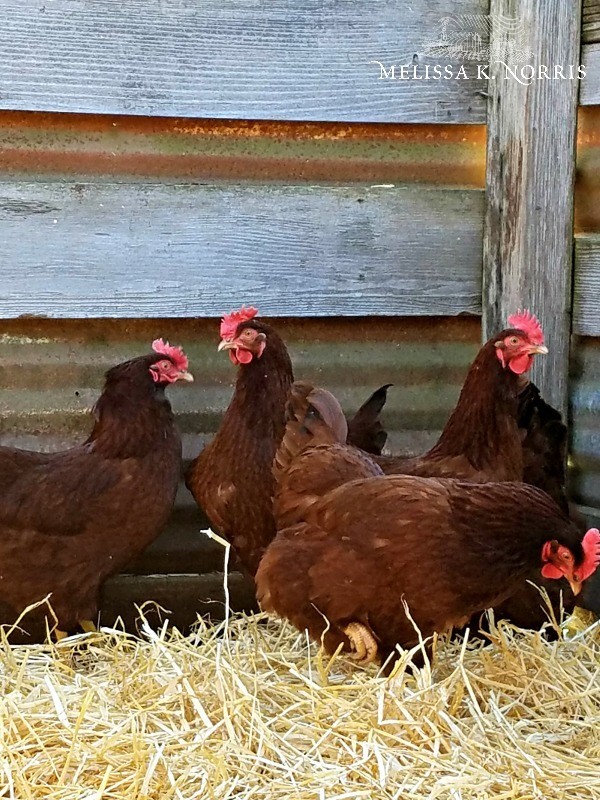
In the fall there is still plenty of time to get winter squash. You can cure your winter squash, pressure can it, or freeze it. I’ve not dehydrated it although I’m sure you could. My book, The Family Garden Plan, lists which crops can and should be cured for long term shelf stability. You can still get fall fruits, such as apples which can be preserved in a number of different ways. Depending on where you live the first part of September and on throughout it, sometimes you can still get beans, tomatoes, and a lot of those summer crops. Of course, as we move into fall you can get the fall crops of brassicas and those types of things. Essentially anything you can get your hands on for a good price. I would consider doing and putting up to have throughout the rest of the fall and winter.
Animal Feed
If you have livestock during the winter, even if they’re grass-fed, you’re going to be feeding some type of feed because there will be less forage. We do with our cattle. We always buy our hay in advance. We have our hay put up. Think about your cats, dogs, chickens, pigs, or whatever animal you have on your homestead. Supplementing in the winter due to less available foraging is necessary. Make sure to have all feed needed on hand.
We have a local grainery, Conway Feed, that has super sacks that we get. They’re about 500-600 pounds that we get for our pigs. They have organic which is all that I get. I also get my dog and chicken feed. I’m buying enough bags to take us through at least three months. Storage can be an issue if you don’t have storage space. I live in a manufactured home. I don’t have a basement, a garage, and I don’t even have a barn. But I do have some areas such as a storage container where I store extra chicken feed. I’m just buying extra bags so that we’re set. Same for the dog food. That way I don’t have to worry about it.
Other Supplies to Have on Hand
Cleaning Supplies
Other things that I want to make sure we have on had are cleaning supplies. I want to make sure that we have enough of our laundry soap and supplies to make hand soap since I make all of our bar soaps. So that means I need to make sure I have enough oils and lye on hand. Make sure you have all your base supplies if it’s a thing you make.
There are some things that I don’t make. In the past, I’ve made our own laundry detergent, but usually, I would alternate it. If you use it too long I felt it would build up and didn’t maybe clean as well. And sometimes I am just so busy that just taking the time to make the laundry soap I decided not to do. I would rather purchase it.
But having all of this stuff in bulk gets to be an issue. I mean, if you have six months’ worth where are you going to store it? As I shared, I live in a manufactured home. I don’t have a ton of space to begin with. I found a company that has laundry detergent, laundry rinses, great bleach alternatives, enzymes, stain removers. They’re really cool. I just started using them and testing their stuff and I love it.
Here’s the kicker: My husband doesn’t really care how natural it is if it doesn’t work as good. He also loves the scent of fabric softener. He likes the clothes to smell not just clean but he likes that scent. I am more concerned about not using synthetic fragrances and dyes, etc. I want to make sure it’s paraben-free. I want it to be as natural as possible. We usually battle because I’ll buy the natural stuff and he doesn’t think it works. So he’ll go buy his own stuff to be used just on his clothes, which gets washed separately. The thing about this company and that I’m really excited about, they have scented (and unscented) and my husband likes it! It’s one we can agree on!
The other exciting thing is that they do refill pouches. You only get the container one time. Yeah, one time! Then you get a small pouch that is a packet of super concentrated. You just add water to it. So you can store months of laundry detergent in a shoebox. My Green Fills Laundry Soap is very effective and has a positive impact on the environment because you’re not throwing out a bunch of empty jugs.
Want 50 FREE loads of laundry soap? My Green Fills has this special offer where you get 71% off and 50 free loads of soap added to your order, click here for the details!
Stock Your Medicine Cabinet
We’re obviously moving into cold and flu season. If you’re on a prescription medication see if you can get a three month supply. Some medications are a controlled substance you probably can’t get a three month supply and may be held to the one month supply. But look into it.
While we do use natural herbs and medicine I do make sure we have some Tylenol on hand for super high fevers for fever reduction. My daughter has a blood clotting disorder so she can’t take Advil, whereas the rest of the family can. So I make sure I have acetaminophen, which is the generic for Tylenol. I make sure that we have Advil, which is ibuprofen, on hand just for certain times when we need them like migraine headaches or high fevers.
Pretty much everything else that we use during cough, cold, and flu season are natural remedies, which means I either need to be growing those herbs and making sure I have them harvested or that I have the supplies on hand to make all of the things that we use.
I’m going to be doing an herbal challenge and a free herbal class at the end of September. I’ll also have a detailed course on it inside the Pioneering Today Academy. We’ll be opening up for new members this fall, but I’ll have some free resources and classes you can go through because I know a lot of people are overwhelmed with what herbs work, what to use, what’s going to be harmful, etc.
This is a lost skill because we’re not really educated on that very much anymore. Used to be most houses had an apothecary or herbal garden. And you knew what to use because it was something that was taught.
But that has been lost over the past few generations so it’s something that is near and dear to my heart because I’ve had to educate myself and learn about as I treat myself and my family. And I come at it from the background that I want to know all of the contraindications. I want to know how something interacts in the body and how it works and when it shouldn’t be used. My daughter has a blood clotting disorder and there are lots of things that she cannot use. I have to be very aware of that.
If that’s something that you have a desire to learn more about I’m going to be offering some really cool things coming up. So stay tuned!
I would definitely to have raw honey and elderberries on hand. Elderberries have great antiviral properties. They have immune-boosting properties. Elderberry syrup, which needs to be prepared in a specific way to make sure it doesn’t make anyone sick, is a great item to have on hand. If you don’t have elderberries growing yet at your place, my favorite supplier, Farmhouse Teas, is a good option to purchase them from.
Games & Crafts
Family games and musical instruments, if that’s you’re thing, are great to have on hand. As we move into cold and flu season the days are getting shorter which means the nights are getting longer. It’s going to get dark earlier. There’s going to be less than we can do outside. There are fewer places that we’re going to. We definitely want to make sure to have something on hand to keep everyone occupied. We have family games. We love to play cards and card games and board games. Musical instruments are another great option and doubles as homeschool learning.
Crafts. I’m a big sewer, quilting, and crocheting. I’m going to be teaching my daughter how to do embroidery this year, but that means I need to make sure I have on hand the supplies to do it. Fabric is actually a little bit tough to come by right now. It seems to be a little bit more expensive. I think because everybody’s been purchasing it to make masks. I’ve also heard that some of the manufacturers can’t operate at full capacity right now with all of the pandemic rules and regulations.
So if you’re planning on doing any of those types of crafts make sure to get the supplies on hand now. These are the steps that we’re taking. I hope that you have found them helpful.
Resources:
References:
Toilet Paper Substitutes & Tips for Reusable Household Items
15 Pantry Items to Stock up On
10 Tips for Storing Vegetables without a Root Cellar (How to Cure Winter Squash)
More Articles You May Enjoy
- Dealing with Emotions During the Holidays (Surrounding COVID and 2020 Realities)
- COVID Remedies & Online Censorship
- 7 Things We’ll Never Go Back to Since COVID19
- Coronavirus Homestead Plan to Alleviate Fear & Be Prepared
- Toilet Paper Substitutes & Tips for Reusable Household Items
- Impact of Being in the Midst of a Crisis How Homesteading Helps
- 13 Pantry Items to Always Have on Hand
